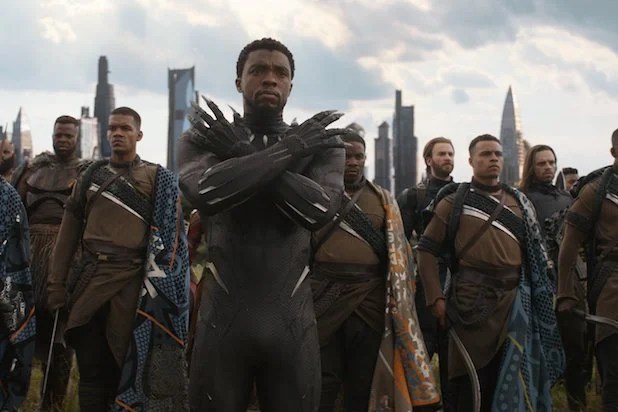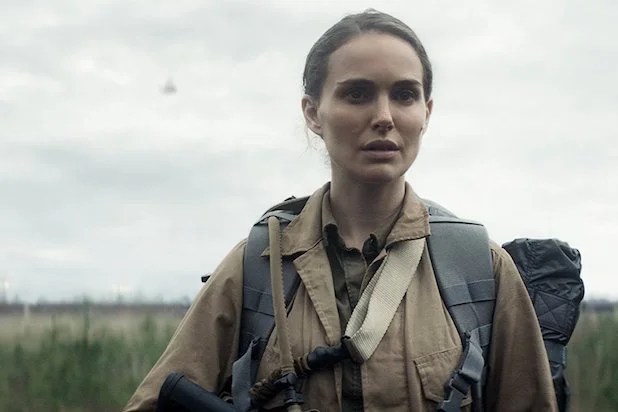
Not all movie scores have the potency to stick with viewers long after the credits rolled. But a great film score not only stands out in our minds, it can bring back the emotions we felt during a particular scene. We can relive the thrill of danger or adventure, tears can well up in our eyes over romantic or mournful notes. Without looking, some scores can even conjure up images from the movie, clear and crisp as when we first watched it, because the music pinned those moments to our memories. There have been hundreds of scores that have had this effect on us over the decade. Here are just a handful of some of our most unforgettable favorites:

10. “Arrival,” Jóhann Jóhannsson
For a movie about communicating with other lifeforms from outer space, some of the most poignant moments of Denis Villeneuve’s “Arrival” are actually more terrestrial. As Amy Adams’ character struggles to complete her mission — figure out why aliens have landed on earth and keep the world’s most powerful armies from attacking them — she must also deal with the memory of losing her young daughter. Jóhann Jóhannsson’s compositions melded the sounds of the visiting extraterrestrials into his music, complementing their attempts to communicate with his ambient score. Max Richter’s stirring composition “On the Nature of Daylight,” a pre-existing work, elevated the characters’ emotional journey through loss and uncertainty to hope.

9. “Black Panther,” Ludwig Göransson
Perhaps the best score to come out of any of the major studio superhero movies, Ludwig Göransson’s detailed compositions for Ryan Coogler’s “Black Panther” layered symbolism and meaning beyond the typical orchestral fanfare. By hiring West African musicians and using instruments from the region, and mixing them with American rap and techno music, Göransson created an acoustic representation of Wakanda that’s both steeped in tradition and has its eyes set on the future.

8. “Annihilation,” Geoff Barrow and Ben Salisbury
Going beyond the scope of typical “eerie alien music,” composing team Geoff Barrow and Ben Salisbury concocted a truly unnatural and unusual accompaniment for Alex Garland’s “Annihilation.” With a score that often sounds like a record playing backwards, the team’s foreboding music sounds as unwelcoming as the unknown invasion the group of women scientists and explorers are sent to investigate.

7. “Crimson Peak,” Fernando Velázquez
The entire soundtrack to Guillermo del Toro’s “Crimson Peak” fits the movie like a lace and satin glove. Steeped in the allure of gothic romance, Fernando Velázquez’s compositions plumb the musical depths of horror movie scares, dramatic murder mysteries and, of course, romantic tension. The most beautiful track of the set, “Edith’s Theme,” not only captures the essence of the main character (played by Mia Wasikowska) but also her romantic highs of waltzing with a beautiful stranger played by Tom Hiddleston. Listening to the score feels just as intoxicating as their on-screen romance.

6. “Drive,” Cliff Martinez
The synth-heavy music accompanying Nicolas Winding Refn’s “Drive” gave this violent neo-noir thriller a cool slickness to match its dazzling neon-lit cinematography and its stone-faced antihero (played by Ryan Gosling). Cliff Martinez’s ominous ’80s-inspired grooves accentuate every impressive scene of a slow-motion fight or full-throttle car chase. Following a scorpion jacket–wearing getaway driver through one more job, the score echoes the driver’s sense of doom on his mission.

5. “If Beale Street Could Talk,” Nicholas Britell
You can feel the characters’ love and heartbreak in every note of this beautiful instrumental piece for Barry Jenkins’ adaptation of James Baldwin’s “If Beale Street Could Talk.” With a powerfully moving string section, Nicholas Britell’s score highlights the movie’s romantic tragedy of two young lovers facing an unkind criminal justice system and an uncertain future. It’s a gorgeous piece that swells with emotion many times, capturing the couple’s ecstasy as they hold on to one another in the hopes that they’ll never have to let go.

4. “Phantom Thread,” Jonny Greenwood
Posh yet dark, elegant yet showy, Jonny Greenwood’s intricate score for Paul Thomas Anderson’s “Phantom Thread” feels like a stylish throwback that would sound at home in the close-knit world of couture fashion of the 1950s. As exemplified in the piano-heavy track “House of Woodcock,” Greenwood captures the whirlwind sense of two unlikely souls falling into a fiercely codependent relationship, one that on the surface looks practically perfect but, as the movie reveals, has its own set of quirks.

3. “Inception,” Hans Zimmer
Perhaps no other score this decade has been parodied or cribbed from as much as Hans Zimmer’s theme for Christopher Nolan’s “Inception.” Flitting between the worlds within our subconscious dreams and reality, the score alternates between ethereal, somber and pulsating notes, and then of course, there’s the alarm-clock-like wakeup call of “BRAMMS,” the brass-driven disruption that became almost too ubiquitous for its own sake. Zimmer wasn’t a fan of the score’s popularity either, telling Vulture that he would get confused by so many imitations of his work.

2. “Under the Skin,” Mica Levi
Mica Levi made her unforgettable debut back in 2013 with an otherworldly score befitting the stylish horrors of Jonathan Glazer’s “Under the Skin.” It’s a sound that’s experimental, sensual and sometimes genuinely unnerving. With so much of the movie in almost complete silence, Levi’s score jumps in and fills the air with its discord, enhancing Scarlett Johansson’s wide-eyed performance as a mysterious being who lures men to their deaths. Levi has gone on to score a number of other unconventional film compositions including “Jackie” and this year’s “Monos.”

1. “Us,” Michael Abels
Composer Michael Abels took a popular rap song from the ‘90s, Luniz’s “I Got 5 on It,” and remixed it into one of the creepiest horror scores of 2019, and yes, the decade. (Abels said it was “Us” director Jordan Peele’s suggestion to slow the beats into its new scary form.) The score caught the attention of moviegoers even before the movie hit theaters, and it has since found life outside of the film as its own viral meme on platforms like TikTok.

